
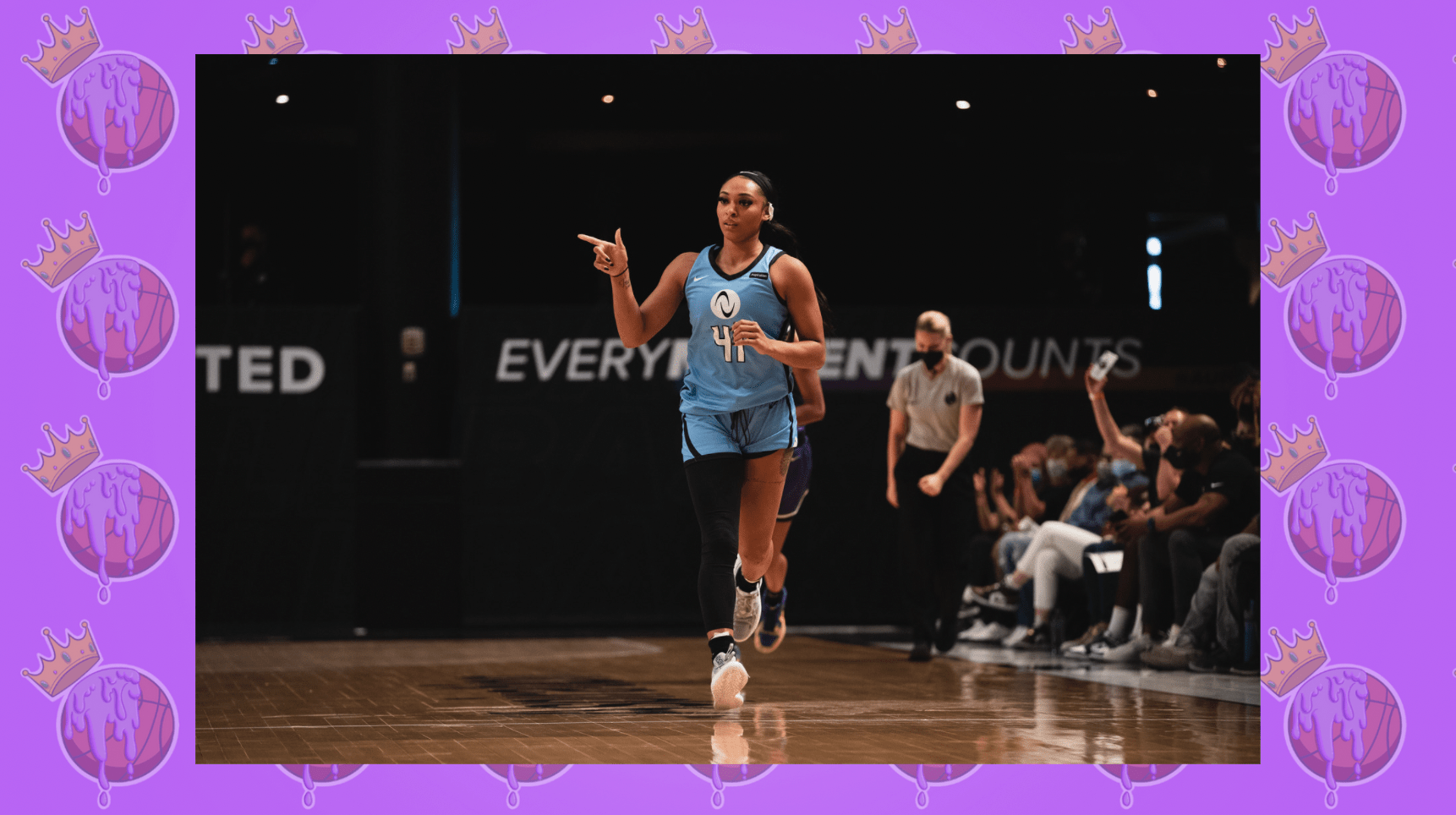
Don’t let bad body language limit your playing time or results. Did you know that 93 percent of communication is “nonverbal”? The body language of hoopers is easy to pick up on while watching a game, and it typically shows who is winning or losing at the moment. So today we’ll do a deep dive on why basketball body language is important, and how to improve your game with this unique discipline.
On game day, what is your basketball body language saying? What image to you want to project to your teammates, coaches, and fans?
“Me, we, my coaching staff, we put a huge premium on body language,” UConn head coach Geno Auriemma said. “And if your body language is bad, you will never get in the game. Ever. I don’t care how good you are.”
“If somebody says, well, you just benched Breanna Stewart for 35 minutes in the Memphis game a couple of years ago. Yeah, I did. That was to motivate her for the South Carolina game the following Monday? No, it wasn’t. Stewy was acting like a 12-year-old. So I put her on the bench and said sit there.” he continued.
Body language is nonverbal communication consisting of postures, gestures, facial expressions, and eye movements. Body language is a two-way process: Your own body language reveals your thoughts and feeling to others; and other people’s body language shows their thoughts and feelings to you.
Kevin Eastman, Vice President of Basketball Operations for the LA Clippers said, “Body language is really important. Body language is my only opportunity, my window, into what I think you’re thinking. And if my guess is wrong, it’s not my fault, it’s yours. Because you displayed the body language. So can you improve body language? Yes, it’s a discipline.”
Looking like a winner will help you play like a winner! WNBA Champion and Washington Mystics’ guard Alysha Clark’s blueprint to overcome imposter syndrome incorporated a tried-and-true method to developing confidence: faking it ‘till you’re making it. She would put on a front in practice and games to convince herself that she belonged in the league. Eventually, she was able to convince herself that she belonged. How’d that work out for her?
“The one thing I do always say, and I’m not joking, but it’s kind of funny: Alysha is legit the best post player in the WNBA. I’m not even joking.” said WNBA Champion and Seattle Storm guard Sue Bird.
Athletes Unlimited guard Air Hearn looks confidently directly at her opponent, showing positive body language.
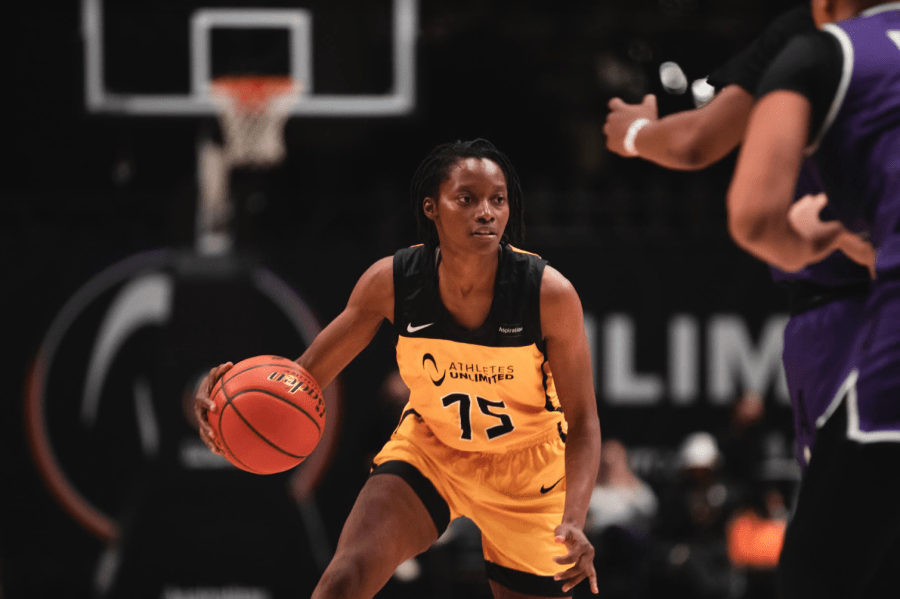
Athletes Unlimited Basketball player Courtney Williams is standing tall and walking strong.
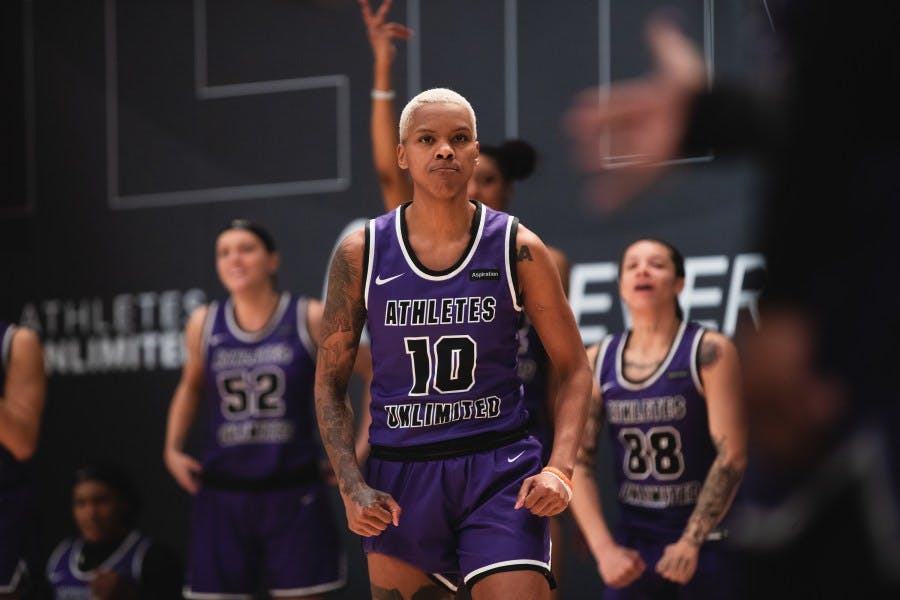
DiJonai Carrington has her shoulders back and her chin up during this Athletes Unlimited game.
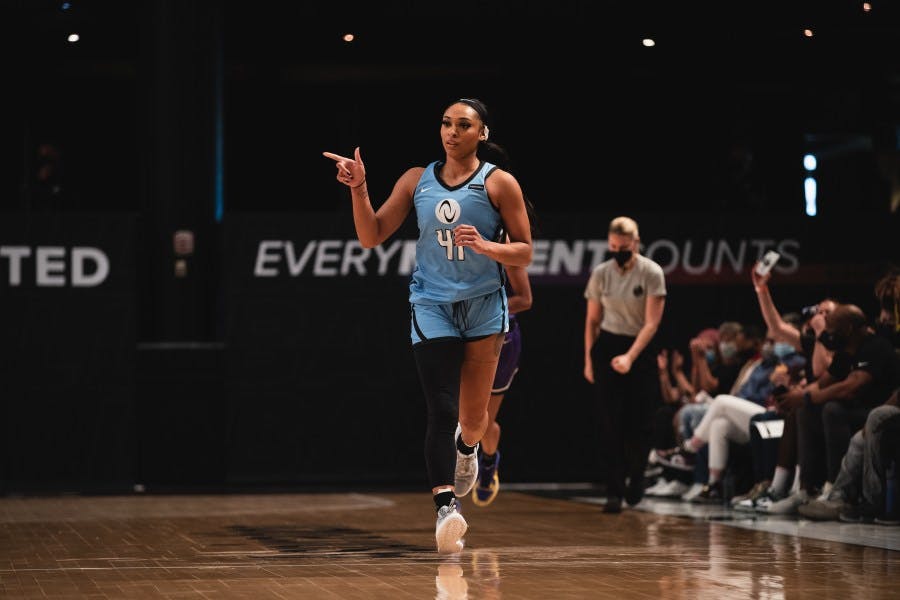
Guard Natasha Cloud leads and cheers for her team for Athletes Unlimited with confident posture.
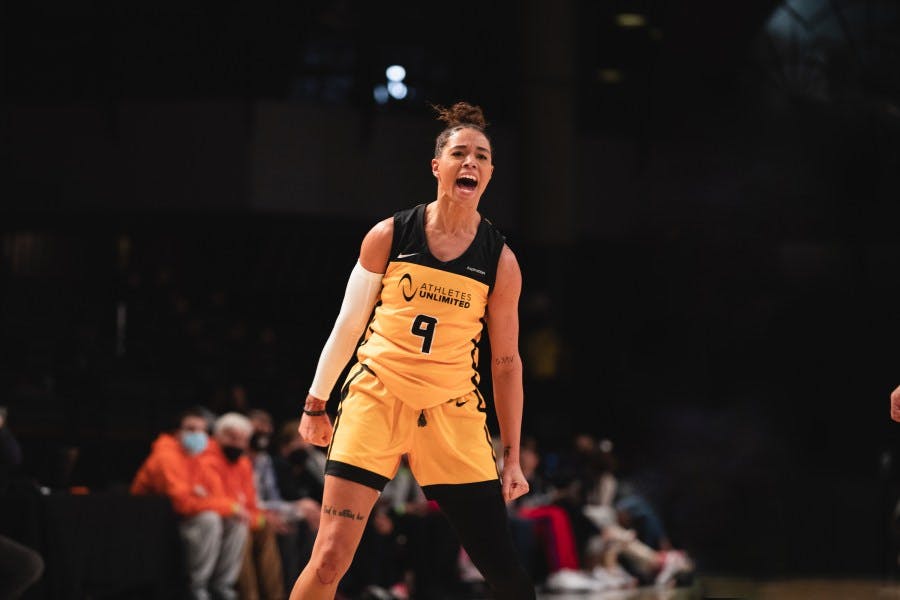
Here’s an example of negative body language: LeBron James sinks into the bench after finding out there were timeouts left:
Here’s a quick example of how a player helps his teammate overcome negative body language:
What you see is what you get! To do your best, adopt the pose of a super confident hooper for all your practices and games. Acting this way will help you stay in a winning frame of mind, regardless of the score. That means even when you’re tired and want to bend over, stand tall and walk strong.
Don’t let the other team see you moping. Your body language will send the right message to the other team if you keep it positive: You can’t be mentally beaten or fazed – no matter what happens.
Findings from a 1988 research study by psychology Fritz Strack and his colleagues revealed that just creating a smile by clenching a pen lightly between your teeth will almost immediately make people feel happier about what it is they are doing. So when you need a quick boost during a game, put a big confident smile on your face instead.
Make each other aware of the body language you see. Sometimes players don’t even feel the signals they’re giving. Informing a teammate of what you see can help them address it.
Look for your body language cues, and what other players’ language says about them. Understand what the fans are seeing, and what your coaches are seeing. And think about do you want them to see that?
Psychologist John Clabby coined a handy acronym for giving your BEST – body language, eye contact, speech, and tone of voice. Always give your best during practice and games: body language (strong not slumped), eye contact (focused not wandering), speech (assertive not passive), and tone of voice (self-assured not soft).
Surely you’ve heard: Look good, feel good, play good. Don’t overlook your appearance. Wear your uniform with pride.
“Everybody in a team working environment is reading everything. And non-verbal cues is definitely a part.” said Los Angeles Lakers Assistant Coach Jesse Mermuys. So be sure you’re showing what you want others to see. Up next, learn all about setting great basketball goals and growing your basketball confidence.